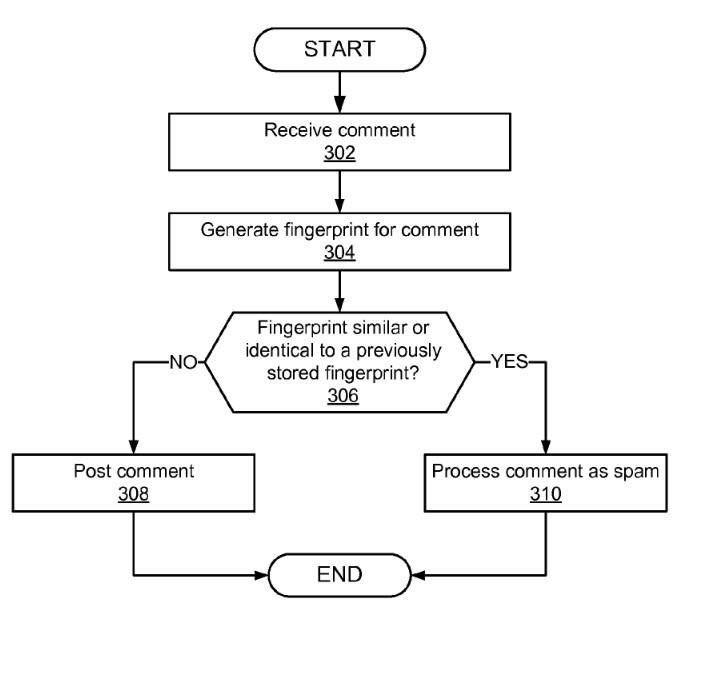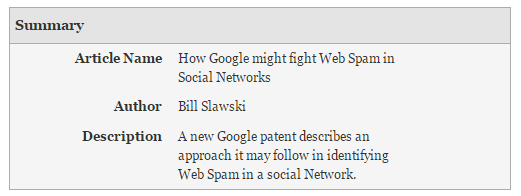
Spammers have been gaming the system for as long as SEO and Social media have been around. There are plenty of people that would much rather take shortcuts rather than be authentic and put in the hard work it takes to develop content and be a thought leader.
Google got started with its famous PageRank algorithm, has patents on tracking authors and all kinds of things to clean up search results. This recent update adds even deeper social network spam detection and prevention.
According to Google patent expert Bill Slawski of SEO by the Sea:
“The patent proposes an approach to detecting spam across a social network. It does this by including a spam detector that includes modules such as a fingerprint generator, a comparison module, and a response module, so that once spam is found and identified, it can be responded to. The fingerprint module captures the characteristics of spam seen elsewhere. The comparison module can be used to identify that fingerprint in comments left in a social network.

In the patent is says:
“The fingerprint is compared to other fingerprints previously generated and stored. If the fingerprint matches any previously stored fingerprints, it is considered to be spam and processed accordingly. If the fingerprint does not match any previously stored fingerprints, it is posted in the social network.”
The Google patent is as follows:
Detecting spam across a social network
Inventors: Christopher Jones and Stephen Kirkham
Assigned to Google
US Patent 9,043,417
Granted May 26, 2015
Filed: July 10, 2012
Think of Google as a detective tracking down a criminal. They need to be able to keep track of the “bad guys” and have a system of doing so. Much like a fingerprinting system used by police, this system will identify patterns that spammers use when posting things like cheesy blog comments on trending posts.

Bill goes on to say:
“The patent doesn’t give us a road-map as to what spam is exactly, and provide ways for us to trigger the negative implications of spam. But if it did, it probably shouldn’t share information like that – a patent that may make it easier for people to spam the search engine would be highly undesirable.”
What’s the takeaway?
If you want to be tracked down and digitally fingerprinted by Google, then by all means, go make some mindless comments in social networks and in blog comments with a link to your irrelevant products or services. Then you will start to develop a devious reputation as a spammer and will forever be known by “Google’s black box” in that light.
If on the other hand you want to excel online with your content – that is the majority of your digital fingerprint – identify yourself and the things you produce.
Note how Bill summarizes his Authorship info at the end of his post:

Spam is not going away any sooner than petty criminals are. The search engines and social networks are getting more sophisticated all the time, so focus on quality in what you do right down to each and every blog comment or profile update. The more you do that, the more your fingerprint will be registered in the Google hall of fame and the more you will show up prominently in search and social media results.
